Thyroid inflamation after months of supplementing
-
@DavidPS Thanks! Still, wouldn't it mean that 164 is a tad low for thyroid supplementation?
-
@DonkeyDude - 164 is within Dr. Peat's range, so it it not low. But it is not optium either. I queried Peatbot.com.
User: what is the optium level of cholesterol
Peatbot.com: The optimal level of cholesterol, particularly for longevity and maintaining mental function, appears to be around 270 milligrams per deciliter (mg/dL). This is based on studies of older women and observations from rest homes, where those with a cholesterol level of 270 mg/dL had the best longevity and functionality. Additionally, the Framingham study indicated that people over the age of 50 with cholesterol levels below 200 mg/dL were more likely to develop dementia.
-
@DavidPS but in the quoted statement he has also said that
But if your thyroid is a little more active, the cholesterol will probably go down to 200 or 190.
So if my wife started using thyroid, wouldn't her cholesterol dip below 160? Also, 270 as an optimum level sounds pretty insane and incongruent with the aforementioned quote.
-
@DonkeyDude - I agree. There appears to be a conflict in Dr. Peat's statements.
Here is a link to a YouTube video.
Ray Peat KMUD 12-19-08 Cholesterol is an Important Molecule Full Interview
-
@Sippy what are your liver enzyme numbers?
-
@DonkeyDude a little Pregnenolone will keep cholesterol from falling with thyroid supplementation.
-
@Ecstatic_Hamster Here are my labs:
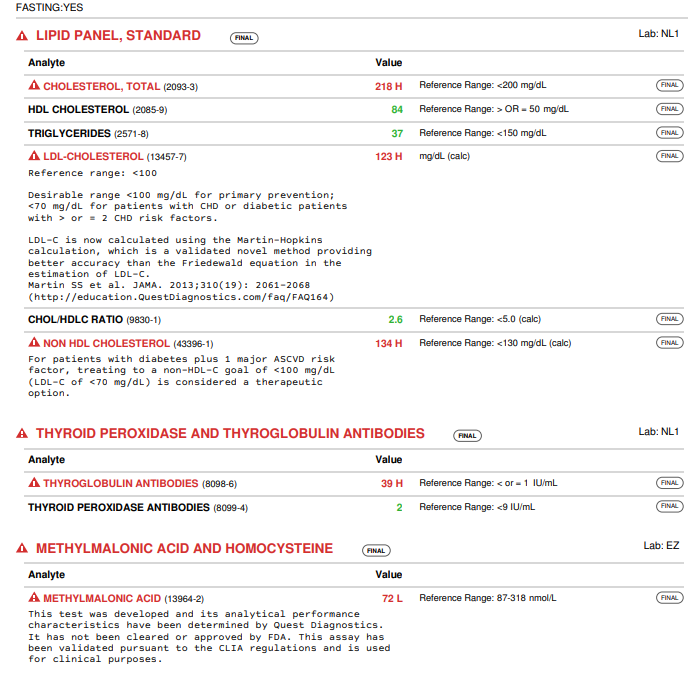
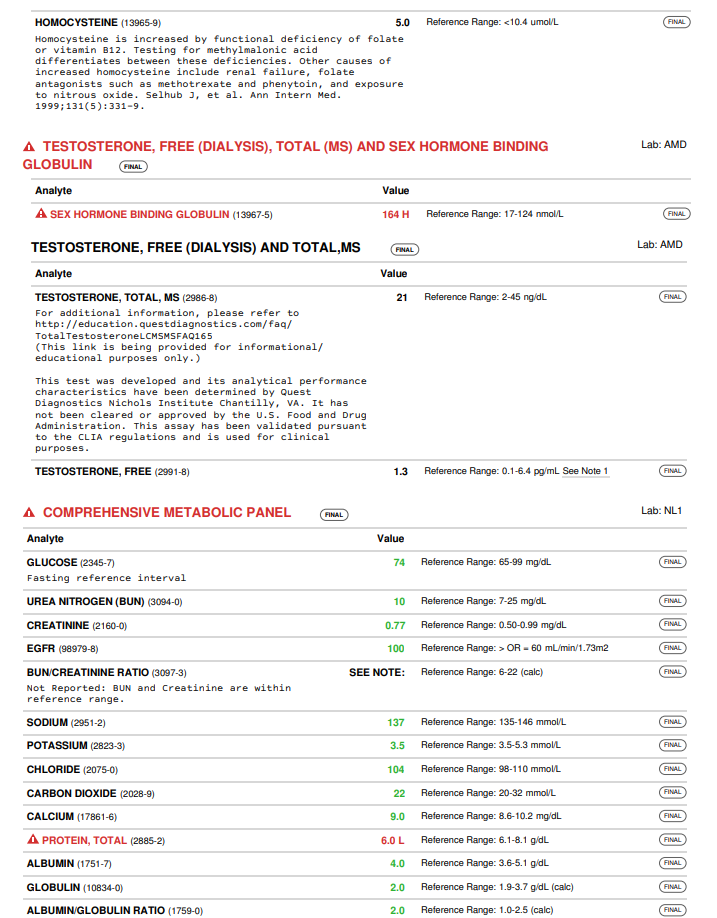
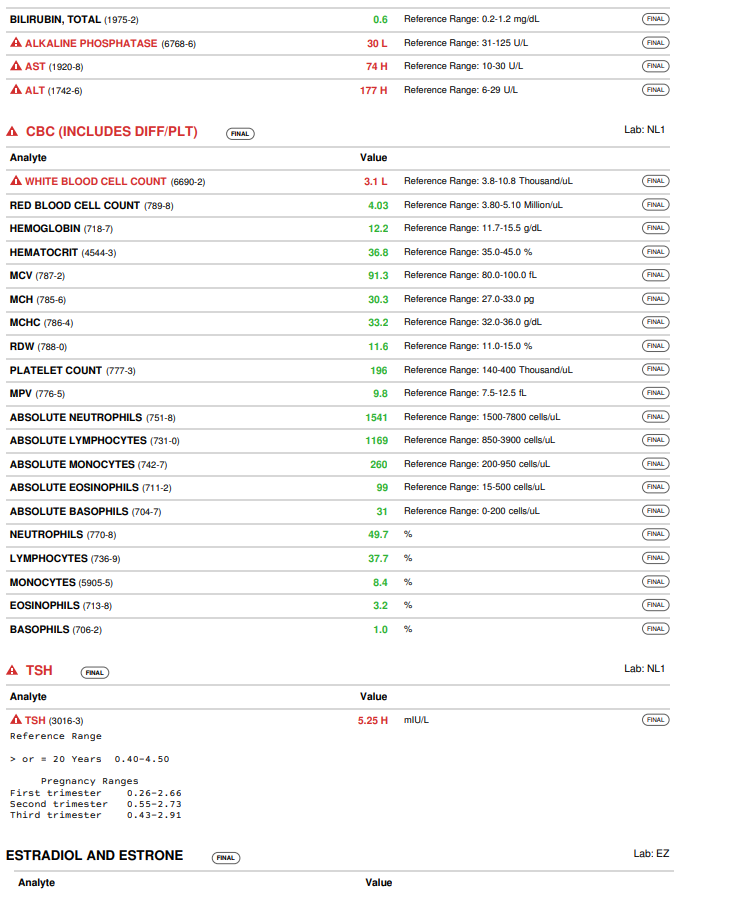
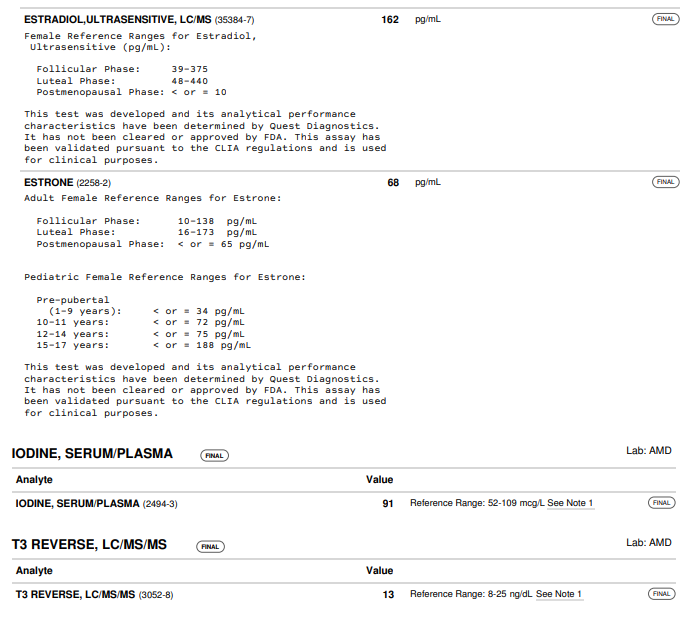
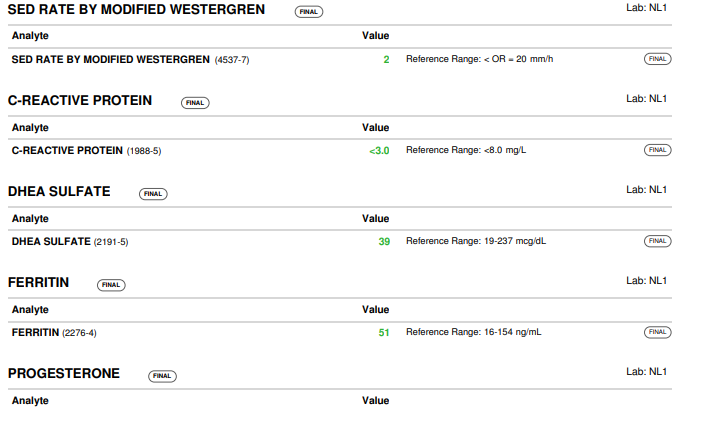
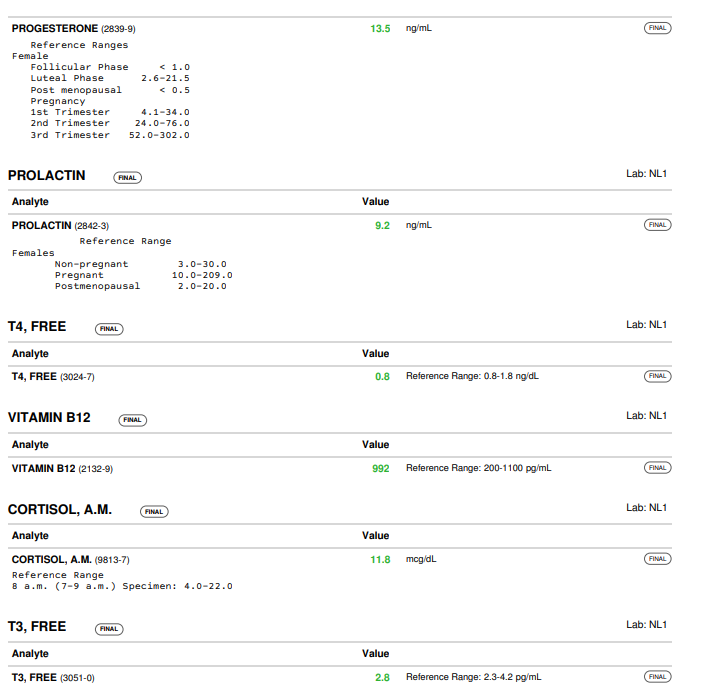
-
@LucH Good post. From those studies, do we think there are actionable dietary strategies or supplements that would specifically help keep reverse-T3 levels low or reasonably "under control"? Making sure there's plenty of selenium and (from the posts by @BroJonas, @DavidPS and @DonkeyDude ) total cholesterol>160 (or greater). Does that match your interpretation of what those studies and Peat's quotes imply about what can be done to promote pro-metabolic, well-functioning Deiodinases-3 and limit antimetabolic/high levels of reverse-T3? What else?
-
@Sippy not sure why it works, but often taking dry E, vitamin E succinate, can lower liver enzymes to normal levels within a few months.
-
@ T3
There is no single answer.
As far as cholesterol is concerned:
Rather than the isolated numbers of cholesterol, it’s the ratio LDL/HDL, total cholesterol and VLDL that must be taken into account.
CM said:“The total/HDL cholesterol ratio seems to provide the most information.
First to be reminded: High LDL level is the sign of a problem. LDL cholesterol is not the culprit; LDL is the fireman. High LDL must be seen as the witness of a problem: Probably arteries oxidized. The body use LDL, with calcium and fibrin, to reinforce the membranes.
You need tocopherols (mix Vit E 20-25 mg per day), beta-carotene (5-10 mg through food). I would add some polyphenols from green tea to0 (sencha tea is “soft” to drink), once a day.!!!One vitamin often forgotten: K2
*) Vitamin E function and requirements in relation to PUFA
Daniel Raederstorff et al. Br J Nutr. 2015. doi: 10.1017/S000711451500272X
=> 20 mg Vit E for 10 gr PUFA
*) Excerpt (from my forum):“Vitamin C regenerates vitamin E and vitamin E protects β-carotene,
helped in this by polyphenols. In the event of β-carotene supplementation, vitamin C regenerates vitamin E and β-carotene, and β-carotene seems to protect vitamin E without really explaining this phenomenon"
Savings effect
Vitamin E is not just a vitamin. Vitamin C makes it possible to recycle oxidized vitamin E and thus prolong its lifespan. The same goes with glutathione which is thus saved for other more useful functions (detox). Glutathion is our antioxidant master.
Vitamin E protects against the deleterious effects of polyunsaturated fatty acids when the latter are excess. And this is quickly done!
See this post if you want details (in French, with a translator):
Vitamine E et peroxydation des membranes- Le cholestérol est un agent protecteur (Cholesterol as a protective agent) :
http://mirzoune-ciboulette.forumactif.org/t1351-le-cholesterol-est-un-agent-protecteur#15047
Chris Masterjohn has said:
Chris Masterjohn interviewed by Chris Kresser.
*) Transcript of a video. Part II / III
https://chriskresser.com/episode-16-chris-masterjohn-on-cholesterol-heart-disease-part-2/
We briefly talked about the need to maintain robust thyroid hormone status and good metabolism.
The need to get sufficient nutrients to minimize the degeneration of these lipids, and the need to minimize inflammation, infection, and other toxic factors that contribute to their degeneration.
*) Transcript of a video. Part III.
- Thyroid hormone is the central governor of the LDL receptor, and the LDL receptor is, in turn, the central governor of clearance of LDL cholesterol from the blood.
- 80% of the people that I test are iodine deficient or have excess bromide levels, which can cause some of the symptoms of iodine deficiency.
- Mind excess isothiocyante (crucifers) that compete for the utilization of the enzyme making thyroid hormones. But unless you are vegan and eat plenty of vegetables and few sources of iodine, you ‘re not going to deal with that problem. Not preponderant (minor component of a diet). See detail in the interview.
- Start iodine low (250 mcg). No change before 7-10 days. But take Selenium first: 200 mcg as beginning dose (total dose) (Super Selenium Complex from Life Extension. It has four different forms of selenium in there. It’s got selenomethionine, sodium selenate, selenodiglutathione, and Se-Methyl L-Selenocysteine).
- Manage insulin: Mind insulin spikes.
“Insulin cooperates with thyroid-stimulating hormone, or TSH, to increase the production of the enzymes and proteins involved in making thyroid hormone.”
“I think that if you find that T3 or reverse T3 are out of whack, probably the best way to address that is to try increasing the carbohydrate intake — not necessarily meaning you have to go on a high-carbohydrate diet”.
=> Read the book Glucose Révolution – Jessie Inschauspé. Or see this link (translator needed).
My Forum : https://mirzoune-ciboulette.forumactif.org/t1925-glucose-revolution#26942 - Your breakfast conditions your whole day in an unsuspected way. Studies show that after a breakfast that causes a big pic of glucose, hunger returns more quickly and blood sugar remains deregulated all day.
- The ideal order of food: fibers - proteins (with fat) - carbohydrates. The fibers ingested in 1st place considerably reduce the pic of glucose caused by sugar.
According to researchers, the impact of this chain is comparable to the effects of drugs prescribed to diabetics to limit glucose peaks!
Useful links
*) Interaction entre les vitamines liposolubles
https://mirzoune-ciboulette.forumactif.org/t127-interaction-entre-les-vitamines-liposolubles?highlight=vitamine+e
*) De quelle quantité de lipides avons-nous besoin pour absorber les vitamines A D E K ?
http://suppversity.blogspot.be/2014/05/vitamin-d-e-k-how-much-and-what-type-of.html
=> Vitamin A, D, E & K - How Much and What Type of Fat Do You Need to Absorb These Fat Soluble Vitamins?ù - Le cholestérol est un agent protecteur (Cholesterol as a protective agent) :
-
Vitamine E et peroxydation des membranes
https://mirzoune-ciboulette.forumactif.org/t642-vitamine-e-et-peroxydation-des-membranes#5645